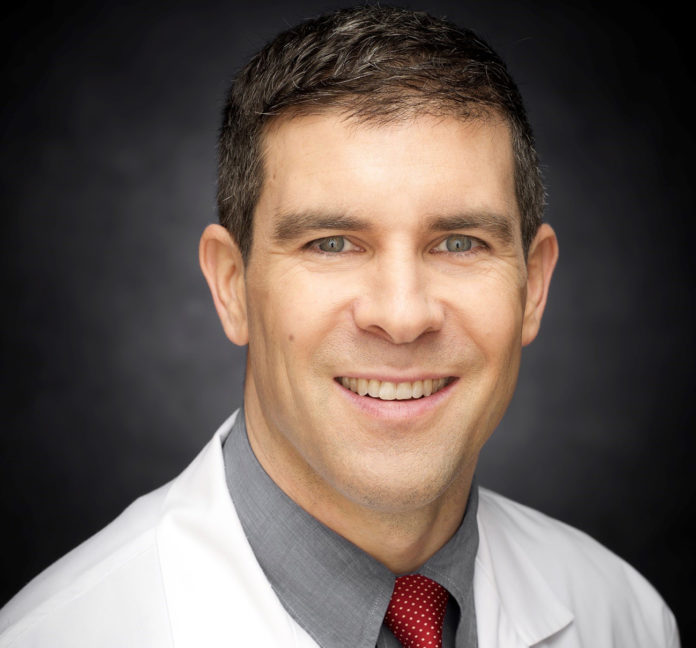Dr. Brett Owens is a board-certified orthopedic sports medicine surgeon, specializing in arthroscopic repair of sports-related injuries as well as complex knee and shoulder reconstructions. Before joining University Orthopedics, Owens served as chief of orthopedics and sports medicine at Keller Army Hospital at West Point, N.Y. While deployed in Iraq during Operation Iraqi Freedom, Owens served as chief of orthopedics at the 86th Combat Support Hospital.
Owens, a professor of orthopedic surgery at The Warren Alpert School of Medicine of Brown University, chief of sports medicine at The Miriam Hospital and a partner at University Orthopedics, talked with Providence Business News about his expertise and University Orthopedics’ new Cartilage Repair Center.
PBN: Tell us about University Orthopedics’ Cartilage Repair Center and what is its likely patient cohort?
OWENS: We are very excited to launch our new Cartilage Repair Center. Our goal is to provide world-class care of cartilage injuries for southern New England patients. While we care for all joints, we are talking mostly about knee lesions. Patients may have sustained a knee injury and been told they have a cartilage or meniscus injury. These are the soft tissues in the knee between the thigh and leg bone that help cushion the knee. Our goal is to relieve pain and help prevent the early onset of arthritis that can be seen with some of these injuries.
PBN: Is the Center offering services not offered elsewhere in Rhode Island?
OWENS: Yes. We perform the highest volume of cartilage repair procedures in Rhode Island. While other surgeons may perform cartilage surgery, our experts are recognized leaders in cartilage surgery and perform all types of cartilage repair. We are the only site in Rhode Island offering Neocart – currently in a Phase 3 U.S. Food and Drug Administration clinical trial; we are proud to be one site for this multisite clinical trial. (Histogenics’ Neocart is an investigational product that implants the patient’s cartilage tissue to repair the damage to the knee cartilage.)
PBN: What new techniques and procedures is the Center offering? Are these inpatient or outpatient procedures?
OWENS: These are usually outpatient surgeries. The unique surgical procedures we offer are meniscus allograft transplantation, partial meniscus reconstruction with scaffold, autologous chondrocyte implantation and osteochondral allograft transplantation.
PBN: What are the risks and benefits associated with using these new techniques?
OWENS: These procedures are best indicated in healthy patients who do not have advanced arthritis but have a lesion or deficiency of cartilage or meniscus. While these procedures sometimes have a longer rehabilitation and recovery time, they provide an option for replacing the deficient tissue and delaying the onset of arthritis in these young knees. Not all patients are candidates, but we are happy to provide comprehensive evaluation of their joints, and can also provide consultation for other surgical options, including osteotomy and joint replacement.
PBN: You have cared for patients with war- and sports-related injuries. How have those experiences informed your practice today?
OWENS: I am fortunate to have taken care of military patients – there is no greater honor. I truly enjoy caring for the entire spectrum of athletes – from professionals to weekend warriors. While their goals may be different, all patients want to be listened to, understood and offered options to help them get back on the field or to their lives. I have been on the other side as a patient, so I strive to provide the kind of care that I would want for myself or my family.
Nancy Kirsch is a PBN contributing writer.













